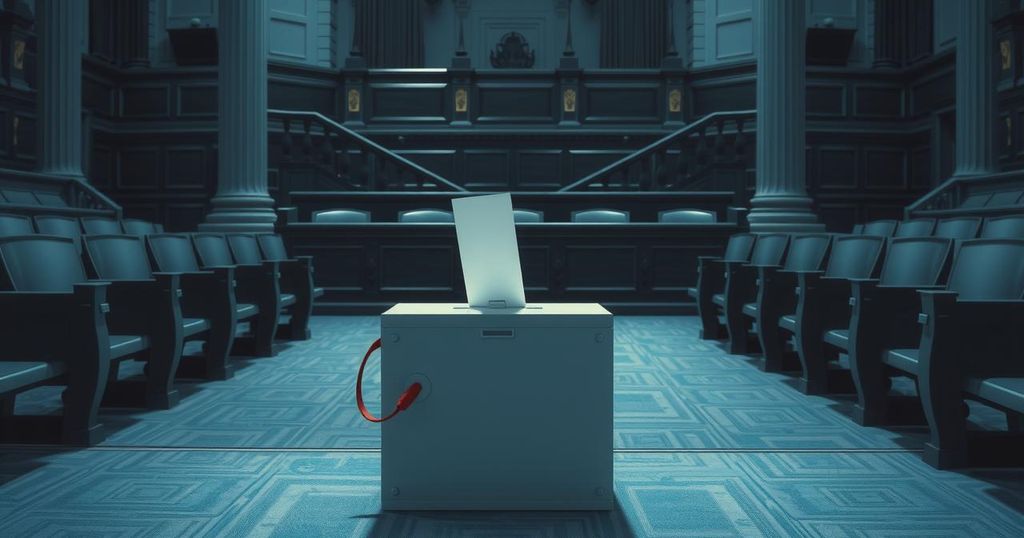Portugal Faces Uncertainty With Possible Third Election Due to Confidence Vote
Portugal is on the brink of a third general election in three years, following a confidence vote scheduled for the minority government. With major opposition parties poised to oust Prime Minister Luis Montenegro amid controversy regarding his family’s law firm, political uncertainty looms. President Marcelo Rebelo de Sousa suggests potential new elections around mid-May, complicating the country’s political landscape as economic factors play a role in voter decisions.
Portugal is facing the prospect of a third general election in three years, as parliament has scheduled a confidence vote on the center-right minority government led by Prime Minister Luis Montenegro. The government, which consists of the Social Democratic Party and a smaller ally, the Popular Party, holds only 80 out of 230 seats, with a significant majority of opposition lawmakers pledging to vote for its removal. The impending vote comes amid political pressure regarding potential conflicts of interest associated with the Prime Minister’s family law firm.
The government requested the confidence motion to alleviate uncertainty regarding its capability to implement policies effectively. Two principal opposition parties, commanding 128 seats collectively, along with smaller parties, have expressed their intent to vote against the government in an upcoming debate. Ongoing political turmoil poses risks for Portugal, a European Union member state of approximately 10.6 million people, especially concerning the distribution of over 22 billion euros ($24 billion) in EU development funds for national projects.
Questions regarding the Prime Minister’s business ties have led to public scrutiny and political discord. Montenegro has denied any misconduct, asserting that he relinquished control of his family’s firm to avoid conflicts of interest upon assuming the leadership of the Social Democrats. Despite these assurances, opposition parties have called for further clarification about the firm’s activities, as recent news revealed that it continues to receive significant revenue from a government-backed gambling operation.
If the confidence vote results in the government’s resignation, President Marcelo Rebelo de Sousa has indicated that elections could be scheduled around mid-May. The President holds the power to initiate elections, which could lead to extended political instability amidst various challenges facing the EU. Rising populism has emerged as a significant issue in Portugal, illustrated by the radical-right party Chega gaining momentum and potentially increasing its parliamentary representation.
Amidst this political climate, the ruling Social Democrats are banking on an economic growth rate of 1.9%, which surpasses the EU average of 0.8%, alongside a jobless rate that aligns with EU statistics at 6.4%. Their primary competitor, the center-left Socialist Party, remains the second-largest faction in parliament. The next general election was initially slated for January 2028, but the current turmoil may alter this timeline significantly.
In summary, Portugal may soon face its third general election in three years as a confidence vote approaches for the minority government led by Luis Montenegro. With significant opposition poised to remove the government amid allegations concerning the Prime Minister’s family business, the nation’s political future hangs in the balance. If the government is overthrown, the President has indicated a potential election timeframe in mid-May, further complicating the nation’s political landscape. Economic factors may influence voter sentiment, particularly as the Social Democrats aim to maintain their leadership amidst rising populism.
Original Source: abcnews.go.com




Post Comment